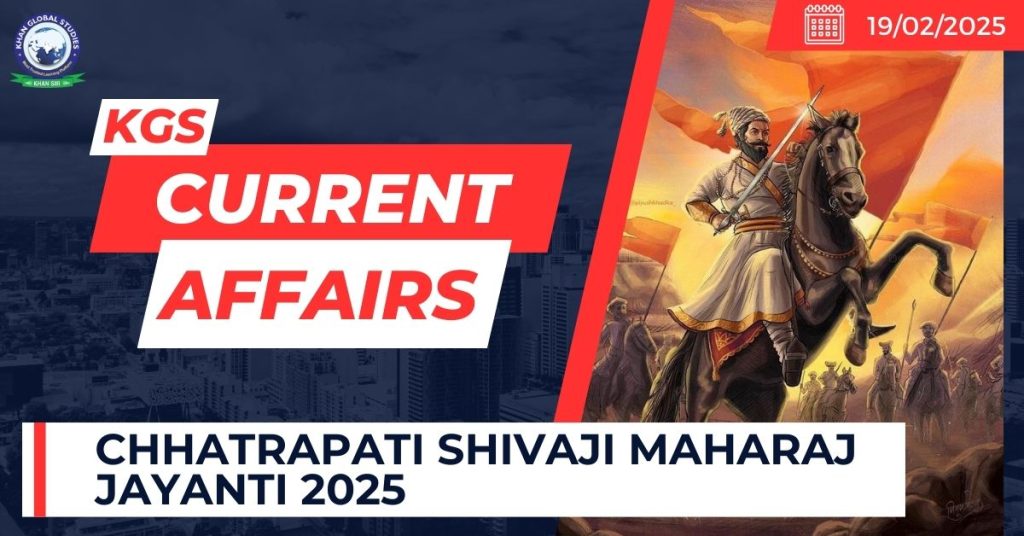About Shivaji:

- Birth and Early Life: Born on February 19, 1630, in Shivneri Fort, near Pune (now in Maharashtra, India).
- Founder of Maratha Kingdom: Established the Maratha Empire, which became a powerful force opposing the Mughal Empire.
- Resistance to the Mughals: Known for his constant opposition to the Mughal dynasty and its expansionist policies.
- Key Military and Strategic Skills: Emphasized guerrilla tactics (Mughals referred to him as the ‘Mountain Rat’) and the use of fortifications, known for creating a well-organized and efficient military. He charted a course for a self-reliant naval force, earning the title of the ‘Father of the Indian Navy’.
- Inclusive Governance: The Brahmans, Marathas, and Prabhus were integrated into the administrative and military structures, fostering unity among diverse groups.
- Coronation: Crowned as the Chhatrapati (King) of the Maratha Kingdom in 1674, marking the formal establishment of his reign.
- Leadership and Legacy: Widely respected for his leadership, military acumen, and vision of an independent, sovereign kingdom.
- Death: On April 3, 1680, at Raigad Fort, leaving behind a legacy that inspired future generations of Maratha rulers.
Administration
- Council of Eight Ministers: Ashtapradhdna
- Peshwa (Prime Minister): In charge of overall administration, led in war, and managed newly acquired territories. His seal appeared on state documents.
- Amatya (Finance Minister): Managed public finances, checked income/expenditure, and reported to the king.
- Mantri (Political Secretary): Maintained daily records of royal activities, oversaw invitations, meals, and intelligence, and served in wars.
- Sachiv (Superintendent): Drafted royal letters and checked the accounts of regions.
- Sumant (Foreign Secretary): Advised on foreign relations, received foreign envoys, and maintained state dignity abroad.
- Senapati (Commander-in-Chief): Managed the army, led military campaigns, and reported on army needs.
- Pandit Rao (Ecclesiastical Head): Honored Brahmans, decided religious matters, and maintained moral standards.
- Nyayadhish (Chief Justice): Presided over civil and criminal cases based on Hindu law, focusing on land and village disputes.
- Decentralized governance
- Shivaji established the concept of “Swarajya,” or self-rule, to empower local communities in decision-making.
- Village Panchayats carried on day-to-day administration, and village Patels decided criminal cases.
Key Battles:
- He began his campaign against the Bijapur Sultanate in 1645, capturing Torna Fort in 1646 at just 16 years old.


